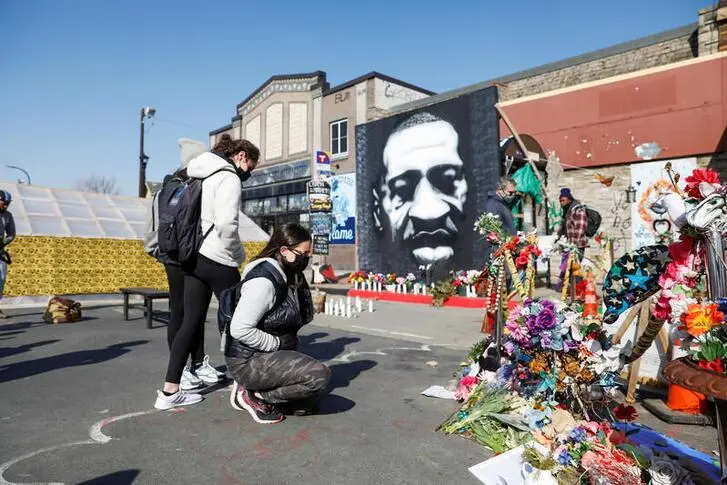PHOTO
MINNEAPOLIS - Prosecutors in Derek Chauvin's murder trial were expected to call more expert witnesses on Tuesday to testify against the former Minneapolis police officer whose deadly arrest of George Floyd sparked global protests last year.
Chauvin, who is white, has argued he followed police training when he kept his knee pushed into Floyd's neck for more than nine minutes as the handcuffed 46-year-old Black man fell limp and stopped breathing.
"I vehemently disagree that that was appropriate use of force for that situation on May 25," Chauvin's former boss, Minneapolis Police Chief Medaria Arradondo, testified on Monday.
Arradondo told the jury that Chauvin's training required him to stop the restraint and provide first-aid treatment while waiting for an ambulance to arrive.
Chauvin has pleaded not guilty to murder and manslaughter charges for Floyd's arrest, which happened on suspicion that Floyd used a fake $20 bill to buy cigarettes on May 25, 2020.
His lawyers have subpoenaed a man who was in the car with Floyd when police arrived, telling the jury he would testify that Floyd took opioid pills before the arrest and appeared to fall into a deep sleep at some point.
The man, Morries Hall, has asked Hennepin County District Judge Peter Cahill to quash the subpoena, saying he would invoke his constitutional right against self-incrimination if he had to appear in the witness stand.
Before the jury is brought in on Tuesday, Hall was due to attend a hearing on his request via a video link from the county jail, where he is being held on unrelated charges of domestic abuse, according to court and county jail records.
The county medical examiner ruled Floyd's death a homicide at the hands of the police, and noted Floyd had also taken the fentanyl and methamphetamine before his death. Chauvin's lawyers argue that Floyd's death was really a drug overdose. Prosecutors from the Minnesota Attorney General's office said medical evidence would contradict that.
Floyd's girlfriend, Courteney Ross, testified last week that she and Floyd struggled with opioid addiction, and that she thought Hall sometimes illegally sold pills to Floyd.
(Reporting by Jonathan Allen in Minneapolis and Brendan O'Brien in Chicago; Editing by Peter Cooney) ((jonathan.allen@reuters.com; +1 646 223 5371; Reuters Messaging: jonathan.allen.thomsonreuters.com@reuters.net))





















